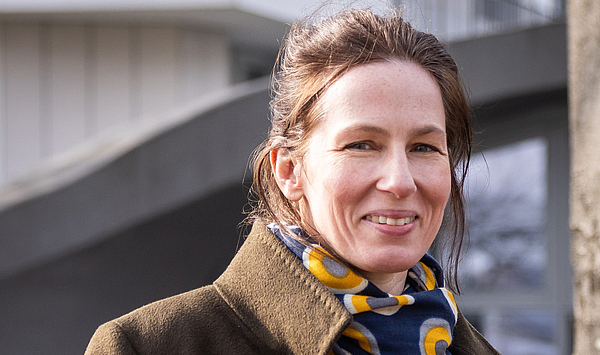
Liszt's traces in the GDR
Inaugural lecture by musicologist Prof Dr Nina Noeske
Since October 2022, Prof. Dr Nina Noeske has been teaching as Professor of Musicology with a focus on the 19th century at the joint Department of Musicology at the University of Music FRANZ LISZT Weimar and the Friedrich Schiller University Jena. She now invites you to her inaugural lecture on Wednesday, 10 April at 6:00 pm in the Festsaal Fürstenhaus on the topic "From Eutopia to Utopia - Lecture on Liszt's Traces in the GDR". Admission is free.
The lecture follows the traces of Franz Liszt in the GDR - starting with the naming of the Weimar Music university on 22 October 1956, through the anniversary celebrations for the 150th birthday in 1961 to the 100th anniversary of his death in 1986. "It turns out that, depending on the political climate, a different Liszt emerges in each case," explains Prof Dr Nina Noeske.
While the Liszt of the 1950s and 60s was still seen as an artist who anticipated socialism and was as revolutionary as he was visionary, the Liszt of the 80s was ultimately a utopian artist who was also regarded as the forefather of New Music in his own country.
"The realisation that the GDR was by no means an ideal - eutopian - society also underpins the musical analyses that deal with Liszt's work in the anniversary year 1986. The 'late Liszt' in particular exerted a special fascination on numerous musicians and musicologists in the 'late GDR'," says Nina Noeske.
Using documents from the university archives, among others, but also from daily newspapers or news programmes such as "Der Augenzeuge", the lecture illustrates the interaction between politics, music policy, musicology and musical practice.
Former university members such as the former rectors of the Weimar Music university Bruno Hinze-Reinhold, Werner Felix, Wolfgang Marggraf and Wolfram Huschke as well as the Weimar musicologist and conductor Peter Gülke will have their say via historical text, image and sound documents. The lecture will be rounded off with musical contributions.
Nina Noeske studied musicology, philosophy and music practice in Bonn, Weimar and Jena. She completed her doctorate in 2005 on "New Instrumental Music in the GDR" at the Department of Musicology Weimar-Jena and habilitated in 2014 on "Liszt's Faust Symphony" at the Hanover University of Music, Theatre and Media.
After working at the Weimar Music university, the Hanover University of Music, Drama and Media (research assistant at the Music and Gender Research Centre), the Hamburg University of Music and Drama (deputy professor) and the University of Salzburg (assistant professor), she accepted a W2 professorship in musicology with a focus on gender at the HfMT Hamburg in 2014.
In 2022, she was appointed to the W3 professorship for musicology at the University of Music FRANZ LISZT Weimar (specialising in the 19th century). Her research focuses on the music and cultural history of the late 18th to 21st centuries from various perspectives.
Further information:http://ninanoeske.de
[13 March 2024]
